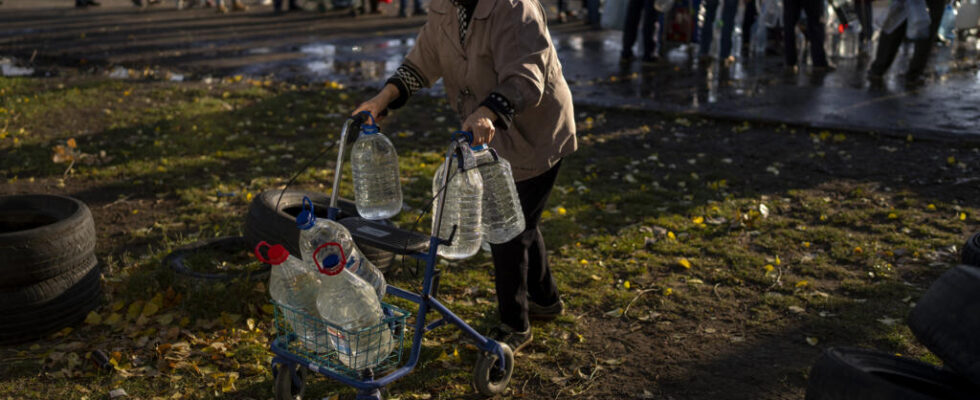In Ukraine, as Russian troops continue to bombard frontline regions, thousands of civilians living in affected areas, particularly in the Donetsk region, find themselves without access to electricity or drinking water. To restore their access to the basic necessity of water, NGOs operating in the region, including Caritas, are setting up tanks and water treatment plants to replace those destroyed by the bombing.
From our correspondent in Novohrodivka,
We are in Novohrodivka, 15km from Pokrovsk, in the Donetsk region, in the east of theUkrainenow just 7km from the front line. There is almost no one on the streets of this city that had 14,000 inhabitants before the 2022 invasion. More than half have fled in the face of the advancing Russian troops.
Oleh Zhuzhman, the city’s mayor, explains the difficulties his citizens face on a daily basis: “We still have a large population but it is made up of retirees and children who are less mobile. We have projects for supplying our populated areas, we are also helped by hygiene packages, food packages, this organization works in all directions. We have also dug wells with the help of this organization.. »
A few people are busy around a makeshift well near a public building. I come every two or three days, a little more often when the grandchildren are here. We still don’t have electricity at home, it just got cut off, it’s going to last two or three hours. It’s different every day. “, says Olga, around sixty years old, who fills several cans of water with her grandchildren at one of the collection points.
Here, the living conditions of Ukrainians are becoming more untenable every day. This is to facilitate this vital access to drinking water that the NGO Caritas, supported by foreign partners, came to install a water treatment plant as well as tanks – because near the front line, all civilian infrastructure is vulnerable, within range of fire and often destroyed by Russian bombings.
Two water points for 6,500 inhabitants
We meet in the premises of the filtering station. “The water here comes from a wellexplains Anastasia, Caritas coordinator and originally from Mariupol. Some of the water is sent to storage tanks as non-potable water for the needs of the population. The rest of the water goes through the filtration plant and is used as drinking water. People can drink it. »
There are two water collection points in Novohrodivka, providing water to all of the approximately 6,500 residents, but they must avoid queuing as this exposes them to shelling.
15km away, in Pokrovsk, Caritas is distributing hygiene kits to the vulnerable population. The scale of the humanitarian aid provided to the inhabitants of the Donetsk region, whether it be water or hygiene kits, is a reminder that in Ukraine, on the front line and in the surrounding area, thousands of civilians, often unable to flee, are paying the consequences of the Russian aggression against their country.
